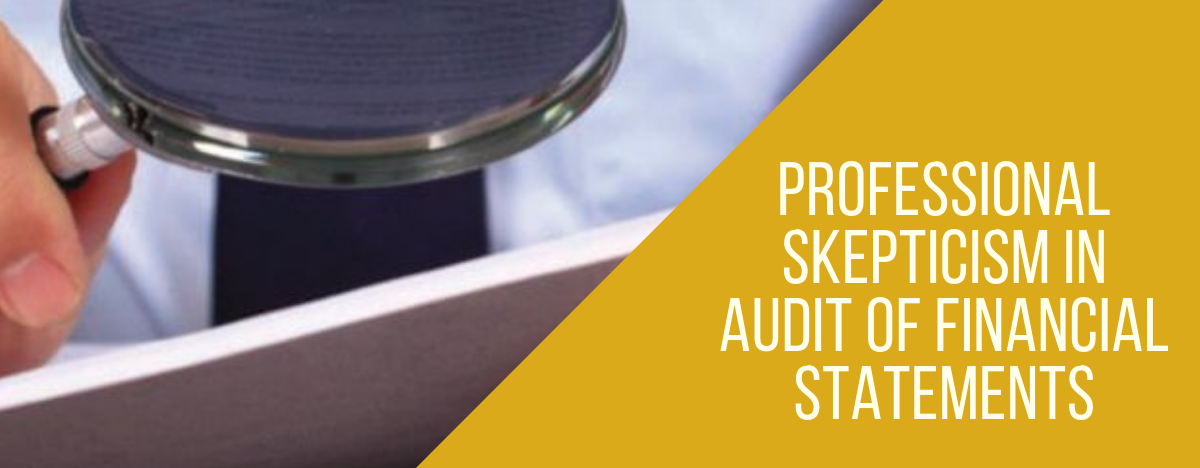Professional Skepticism in Audit of Financial Statements
December 22, 2018

Professional skepticism in auditing refers to "an attitude that includes a questioning mind and a critical assessment of audit evidence”. Its importance has been underlined multiple times since auditing standards codification.
The auditor shall plan and perform an audit with professional skepticism recognizing that circumstances may exist that cause the financial statements to be materially misstated.
Professional skepticism includes being alert to:
- Audit evidence that contradicts other audit evidence obtained.
- Information that brings into question the reliability of documents and responses to inquiries to be used as audit evidence.
- Conditions that may indicate possible fraud.
- Circumstances that suggest the need for audit procedures in addition to those required by the ISAs.
Some typical examples where auditors have to apply Professional skepticism are given below:
- When assessing engagement acceptance – at this stage the auditor should consider whether the management of the intended audit client acts with integrity and whether there are any matters that may impact on the auditor is able to act with professional skepticism if they accept the engagement, such as ethical threats to objectivity.
- When performing risk assessment procedures – an auditor should be skeptical when performing risk assessment procedures at the planning stage of the audit.
- When obtaining audit evidence – the auditor should be ready to challenge management, especially on complex and subjective matters and matters that have required a degree of judgment to be exercised by management. The reliability and sufficiency of evidence should be considered, especially where there are risks of fraud.
- When evaluating evidence – the auditor should critically assess audit evidence and be alert for contradictory evidence that may undermine the sufficiency and appropriateness of evidence obtained.
The auditor should also apply professional skepticism when forming the auditor’s opinion, by considering the overall sufficiency of the evidence to support the audit opinion, and by evaluating whether the financial statements overall are a fair presentation of underlying transactions and events.
Aspects of an audit where professional skepticism are important:
- Accounting estimates – this can include fair value accounting estimates, the use of significant assumptions by management in developing accounting estimates, and reviewing the judgments and decisions used by management for management bias in developing accounting estimates.
- Going concern – the auditor should review management’s assessment of going concern and whether management’s plans are feasible, this being particularly important where there is significant doubt over the entity’s ability to continue as a going concern.
- Related party relationships and disclosures – it can be difficult to obtain information on related parties, as knowledge may be confined to management meaning that the auditor may have to rely on management to identify all related parties The auditor should also be skeptical when assessing the business rationale behind related party transactions.
- Consideration of laws and regulations – the auditor should be alert throughout the audit for indications that there may have been a suspected non-compliance with laws and regulations.
Conclusion
Adopting and applying a skeptical mindset is ultimately a personal and professional responsibility to be embraced by every auditor. Given the increasingly complex and subjective nature of IFRS requirements, auditors must be confident to challenge management on a range of matters relevant to the preparation of the financial statements. Professional skepticism is an essential element of quality control, and in safeguarding the credibility of the audit opinion.
Know more about our Audit service.Last Updated: 22nd December 2018
This article is contributed by:
Ajmal Muhammad Ali
External Auditor






